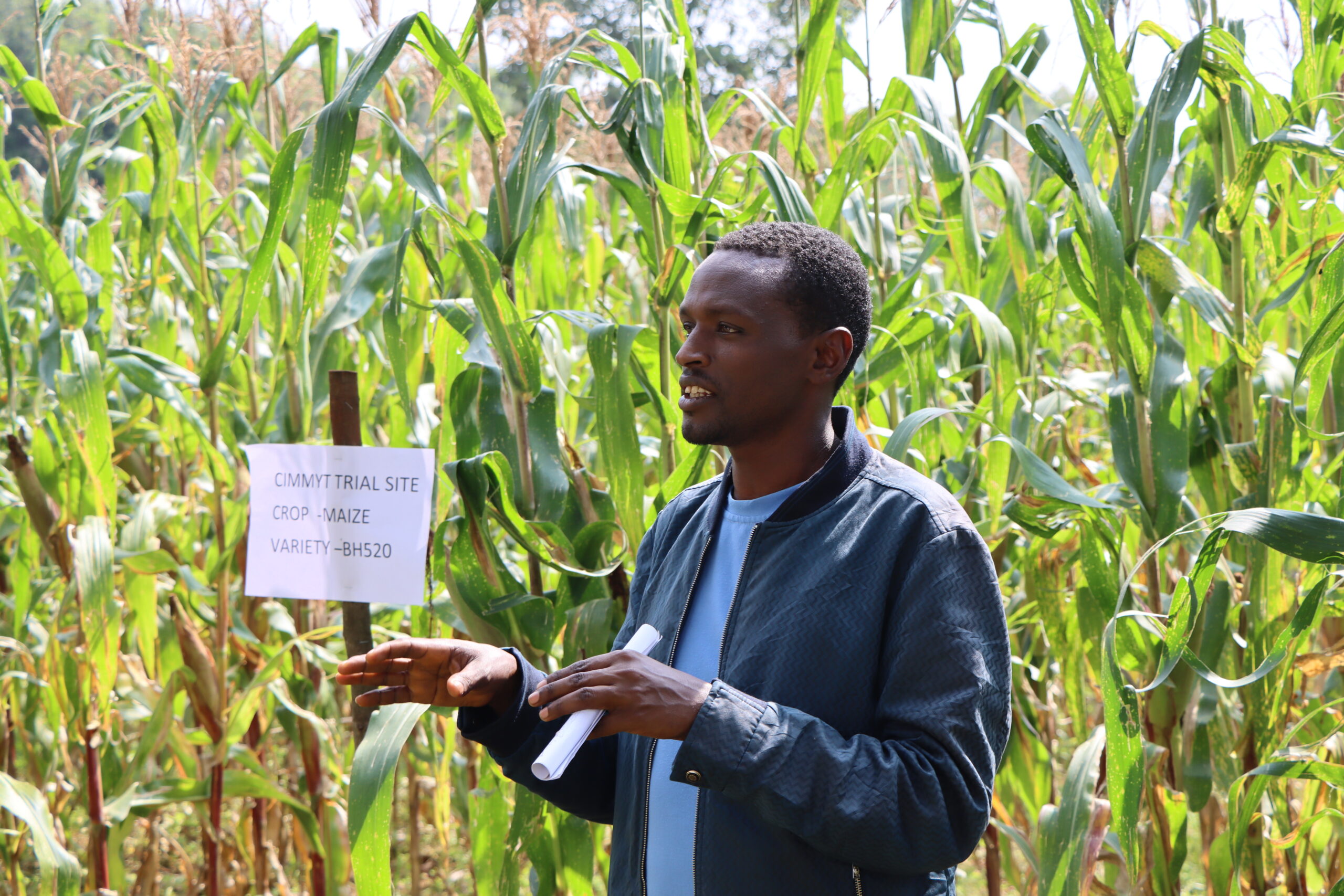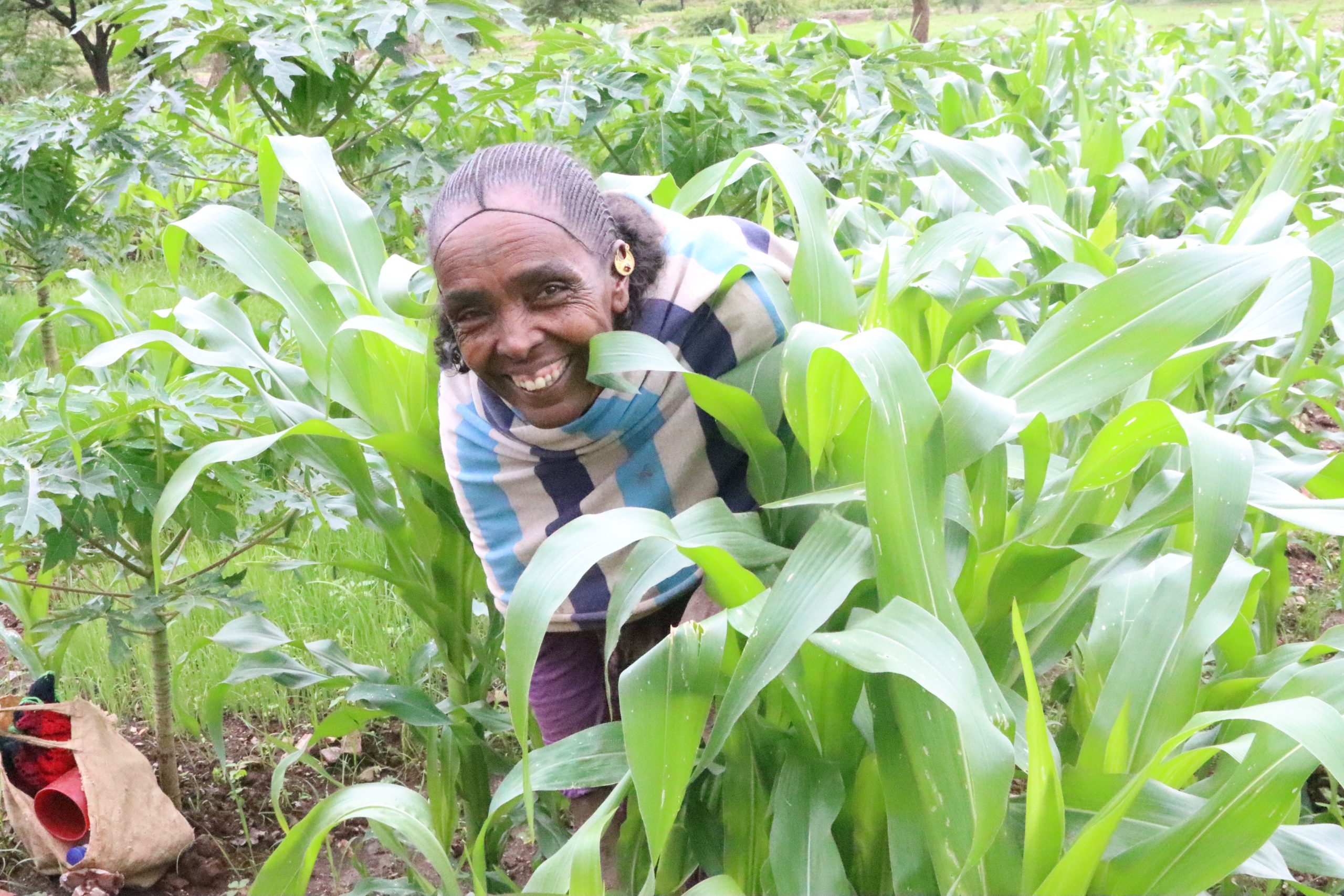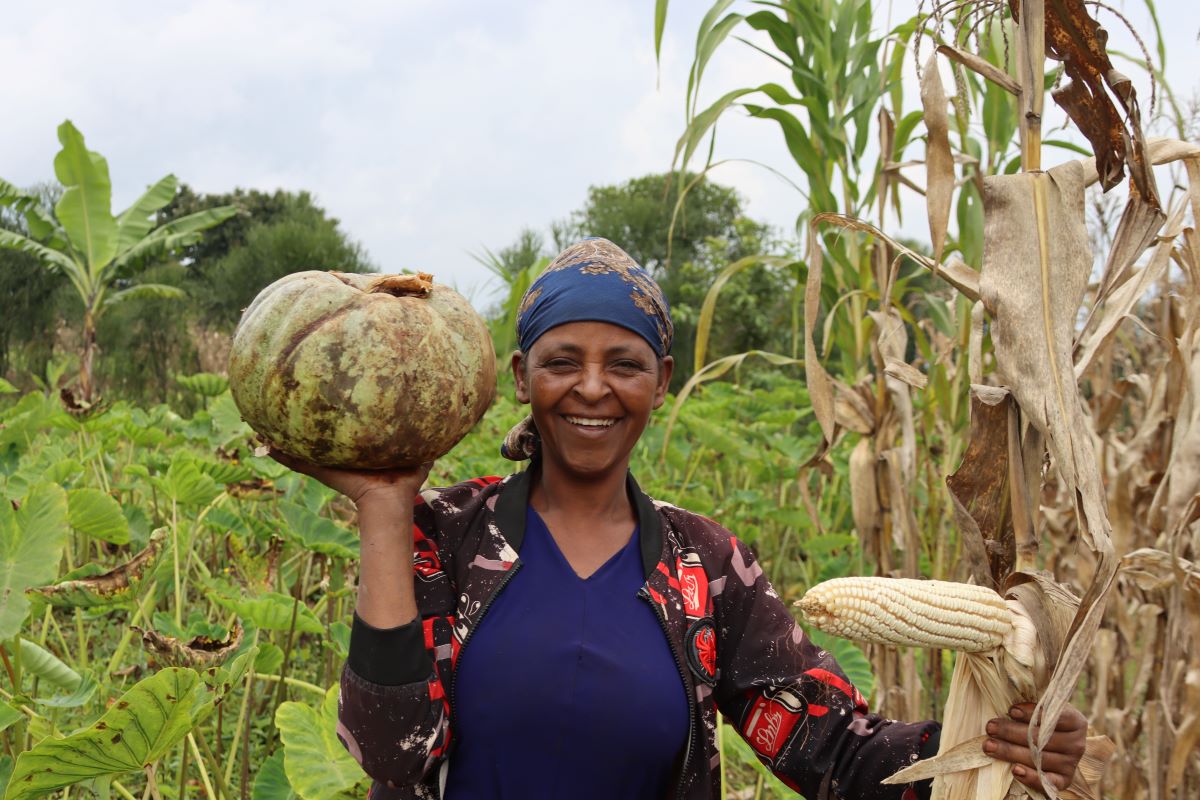
Restoring Soils, Restoring Hope
In the rolling highlands of East Wollega Zone, Oromia Region, a quiet transformation is taking place. Smallholder farmers are embracing Conservation Agriculture-based Sustainable Intensification (CASI) practices that are restoring soil health, boosting productivity, and improving food and nutrition security.
At the heart of this transformation are model farmers, like Marame Chali whose adoption of sustainable farming practices inspires peers. This shift is being driven by the Scaling Conservation Agriculture-based Sustainable Intensification in Ethiopia (SCASI) project —jointly led by the CIMMYT and CFGB networks in collaboration with BoAs, and national research centers.
From soil to sustenance: Farmers reaping the benefits of conservation agriculture

Across Ethiopia’s East Wollega and other SCASI project sites, farmers are transforming their land and their livelihoods through CASI practices. By applying techniques such as minimum tillage, mulching, intercropping, composting, and cover cropping, communities are witnessing visible improvements in crop performance, water retention, and soil health.
“Since we started adopting CASI practices, our soil moisture retention has greatly improved, even during dry periods. We feed the soil, and now the soil feeds us back,” says Alemu Merera, model farmer from Sibu Sire District.
The SCASI project promotes a holistic, systems-based approach, integrating crop and livestock production, water and nutrient management, and community learning. Farmers receive a menu of 16 CASI options tailored to local conditions, helping them build resilience and sustainability.
Nurturing life from the ground up
Beyond higher yields, CASI is empowering communities. Vermicomposting, for instance, turns organic waste into nutrient-rich fertilizer, creating new opportunities for women, youth, and marginalized groups to participate in sustainable agriculture.

Women leading change: Mariam Chali’s story
Farmer Marame Chali stands as one of the most inspiring examples of the SCASI project’s success. After participating in FH-Ethiopia-led training sessions and exposure visits in Sibu Sire, she quickly adopted conservation agriculture practices and integrated fodder production on her farm.
Her openness to learning and innovation has not only enhanced her farm’s productivity and resilience but also transformed her into a storyteller and advocate for sustainable farming within her community. Marame’s journey illustrates how knowledge sharing, practical exposure, and continuous support can empower smallholder farmers to improve their livelihoods and contribute to climate-smart, sustainable agriculture.
“By adopting CASI, my farm now produces more food, supports my livestock, and gives me additional income,” she explains proudly.
Through practices such as mulching, crop rotation, and intercropping, the SCASI project introduced legumes and fodder crops—including pigeon pea, climbing haricot beans, lupine, and desmodium. Marame received 100g in the 2022 CIMMYT-organized learning event in Addis Ababa. She successfully multiplied the newly introduced haricot bean climbing, and generously shared seeds with more than 40 neighboring farmers. Her overall efforts not only generated significant income but also improved soil fertility and her family’s nutrition. Today, Marame’s success continues to inspire others in her community to adopt vermicomposting, mulching, and intercropping, creating a ripple effect of innovation and resilience across the region.

Strengthening systems, not just yields
According to Birhan Abdulkadir, CIMMYT Researcher and Project Leader, SCASI’s impact extends beyond yield improvements:
“SCASI strengthens entire farming systems. Through participatory mega demonstrations and extensive farmer engagement, we reached over 17,500 households in the project target eight districts, trained more than 21,000 farmers, and supported 376 community platforms. Our action research evidence shows that over 90% of beneficiaries adopted 4 to 6 CASI practices on their farm plots, demonstrating integration of comprehensive CASI packages that increased yields by up to 144%, improved soil pH, stabilized soil organic carbon, reduced yield variability, and enhanced household food security. These outcomes demonstrate how integrated CASI adoption drives productivity, resilience, and soil health in smallholder farming systems.”
Scaling success: from impact to expansion

The SCASI model is now ready for expansion. Its climate-smart and soil-friendly technologies are adaptable to local agroecological contexts, ensuring long-term resilience.
Sahlemariam Mennamo, Senior Program Manager at the Canadian Foodgrains Bank (CFGB), highlights the breadth and impact of SCASI’s work:
“Over the past four years, SCASI has made significant contributions in Ethiopia. We’ve introduced 16 tailored technologies and strengthened the capacities of farmers and extension workers through hands-on training”.
Farmers began with small trial plots but rapidly expanded adoption after seeing multiple benefits — improved soil fertility, reduced labor, and higher yields. Minimum tillage, crop rotation, and legume intercropping have become the foundation for sustainable productivity.
“Altogether, SCASI has brought multiple benefits — higher productivity, healthier soils, and more sustainable livelihoods. We are striving to expand these gains even wider.”
— Sahlemariam Mennamo, CFGB
The project’s integrated, farmer-centered approach is now being scaled nationally. In Leka Dulecha and Sibu Sire districts alone, government partners have expanded CASI practices to 14 new villages, about 5,453 farmers are now reaping the benefits of CASI, demonstrating institutional commitment and the model’s scalability.
Tadesse Alemu, Senior Project Manager at Food for the Hungry Ethiopia (FHE), notes:
“SCASI has more than doubled yields and transformed farming — diversifying crops, improving nutrition, and boosting incomes. Farmers who once struggled with degraded soils are now producing more with less labor, while restoring their land’s natural health.”
As Marame Chali puts it,
“We used to worry about what the soil could give us. Now, we think about what we can give the soil.”
Looking ahead: Institutionalizing impact for a sustainable future

Through farmer-led innovation and system-wide collaboration, SCASI is charting a pathway toward a resilient and prosperous farming—one that nurtures healthier soils, empowered farmers, and a sustainable future for Ethiopian agriculture. Joint monitoring visits with donor representatives and partners have confirmed the project’s transformative results.
The next step is institutionalization — embedding CASI within national strategies, training programs, and extension systems to ensure long-term sustainability.
About the project
The SCASI project is jointly implemented by CIMMYT and CFGB networks (FHE, MSCFSO and TDA) with financial support from the Development Fund of Norway (DF).
Operating across four regions of Ethiopia—Amhara, Benishangul Gumuz, Oromia, and the South Ethiopia Regions. SCASI addresses soil degradation, declining crop yields, and increasing climate vulnerability.
Through the promotion of Conservation Agriculture (CA) and complementary sustainable practices, SCASI helps farmers restore soil health, enhance productivity, and strengthen resilience to the impacts of climate variability. Beyond agronomic practices, the project also works to improve farmers’ access to quality seeds, organic inputs, forage & cover crops integration, and knowledge resources, laying a strong foundation for food and nutrition security and a more sustainable agricultural future for Ethiopia.

 Climate adaptation and mitigation
Climate adaptation and mitigation 